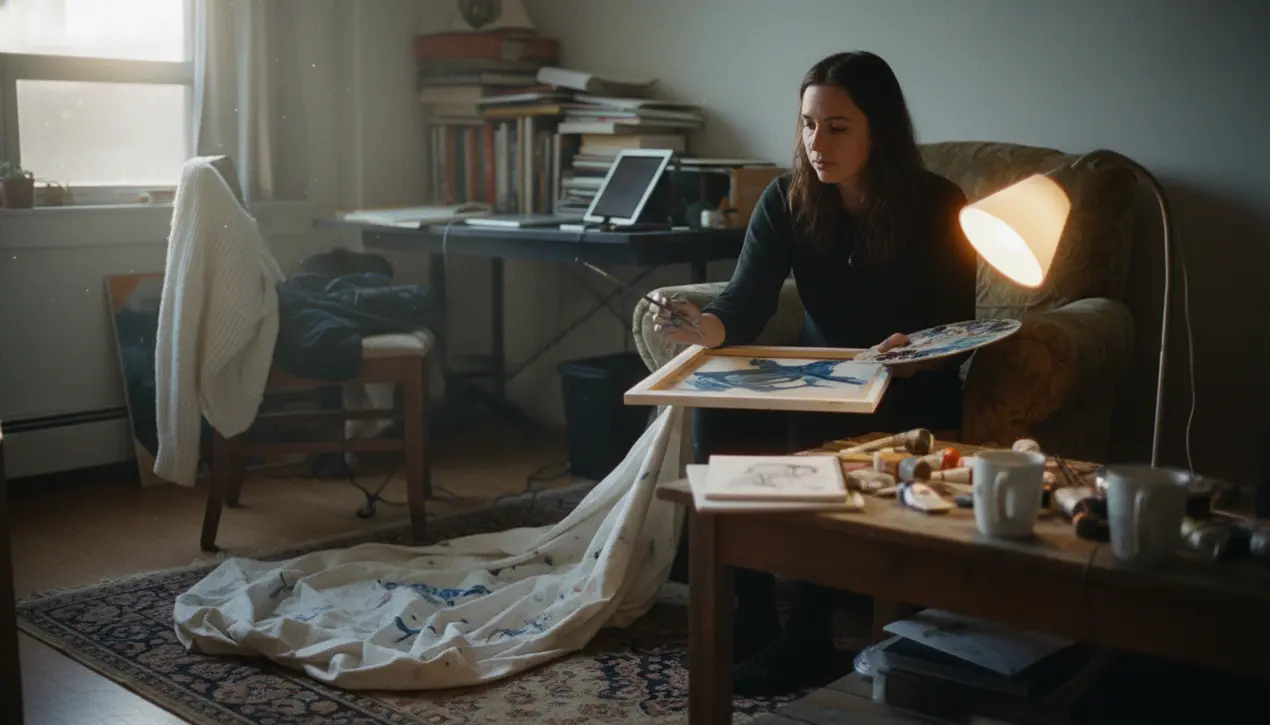
Entertainmenttheatre & artsArt Exhibitions
Art Problems: Do I Need a Studio?
LA
Laura Bennett
6 hours ago7 min read4 comments
The question of whether an artist truly needs a dedicated studio is one that echoes through the corridors of countless creative minds, a quiet but persistent hum beneath the more glamorous discussions of inspiration and exhibition. It’s a deeply human dilemma, less about square footage and more about the psychological architecture we build for our work.I’ve spoken with painters who create masterpieces at their kitchen tables, the scent of last night’s dinner mingling with turpentine, and sculptors who feel utterly paralyzed without the sanctity of a separate, messy room that is entirely their own. One ceramicist I interviewed, a woman named Elara, described her transition from a corner of her living room to a rented studio space as 'learning to breathe for the first time.' For her, the physical act of leaving her apartment, of walking to a specific place with a specific purpose, created a mental airlock that separated the mundane anxieties of daily life from the sacred space of creation. It wasn’t just about containing the clay dust; it was about compartmentalizing her mind.Yet, for every Elara, there is a counterpart like Marcus, a digital artist whose entire studio exists within the sleek confines of his laptop. He finds the very concept of a fixed location antiquated, his most profound ideas striking during a train commute or in the quiet hour at a local café.His story challenges the romantic, almost mythical, status we afford the studio—the modern-day garret. This tension between the need for a dedicated sanctuary and the freedom of a nomadic practice speaks to a fundamental question about the nature of artistic work itself: is it a profession that demands a designated office, or is it a state of being that should permeate one’s entire existence? The financial burden cannot be ignored, of course; a studio is a luxury that many emerging artists simply cannot afford, forcing a pragmatic creativity that is, in its own way, a powerful artistic discipline.Ultimately, the answer is not found in a real estate listing, but in a deeply personal audit of one’s own process. Does your art require a door you can close, both literally and metaphorically? Or does it thrive on the beautiful, chaotic integration of life and art? The most successful artists I’ve met are not those with the most spacious lofts, but those who have honestly answered this question for themselves, building a practice—whether at a kitchen table or in a warehouse—that authentically supports the strange and wonderful work of making something from nothing.
#art studio
#creative process
#career advice
#art problems
#featured
#artists
#workspace
#art career
Stay Informed. Act Smarter.
Get weekly highlights, major headlines, and expert insights — then put your knowledge to work in our live prediction markets.
Comments
Loading comments...
© 2025 Outpoll Service LTD. All rights reserved.